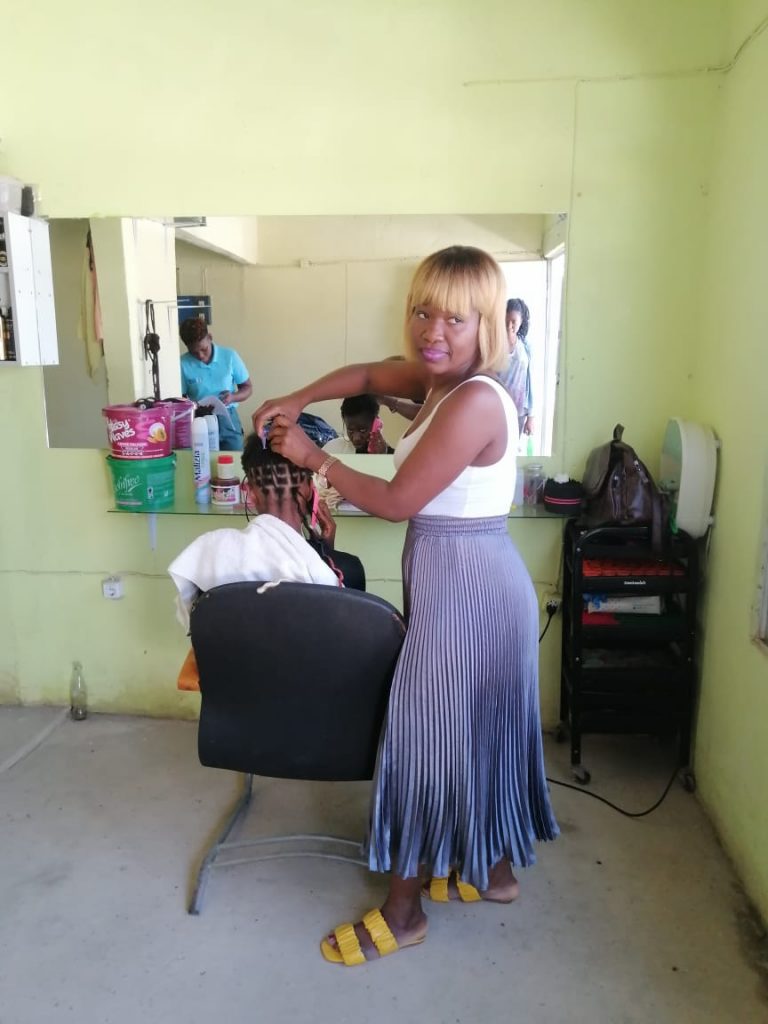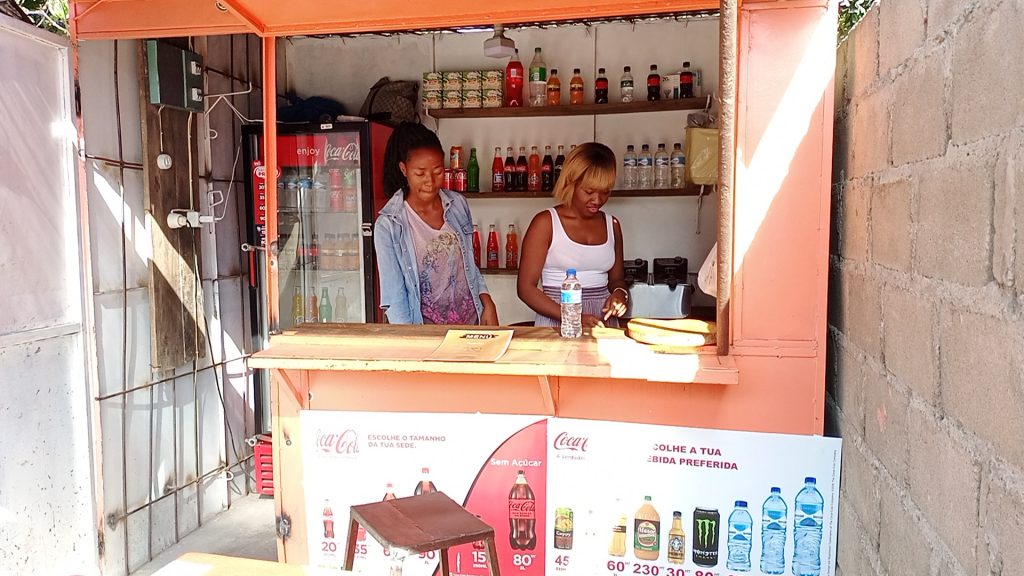
A Mother in Mozambique Succeeds in Running Her Two Businesses
When Elisa and her husband got a divorce, her need for an independent income became acute. She's now able to support herself and her family after working with TechnoServe.

The strands of hair pass easily through the fingers of Elisa Atália Zibia. It shows the great amount of experience she’s had with braiding since she was younger. “I started my business making braids at home for neighbors and some people I knew as a way to make money to pay for my studies and buy bread at home,” says Elisa.
These responsibilities were left to her after tragedy struck her home. “My father died when I was nine years old, and my mother fell seriously ill soon after,” says Elisa. “I grew up in a family where we could only eat one meal a day.” Sadly, Elisa’s experience with hunger is not unique in the country of Mozambique.
Food Security and Gender Issues in Mozambique
As of March 2022, nearly 1.9 million people in Mozambique were reported to be highly food insecure due to conflict, low rainfall, and high food prices. Compounding this problem are the impacts of the COVID-19 pandemic and the recent outbursts of conflict, which have threatened the livelihoods of people in Mozambique.
Livelihoods for women in Mozambique are also affected by strongly held beliefs about gender roles that often make it difficult for women to find work outside of the home. And when they do, they are often not supported by their husbands. Men are often seen as the breadwinners, while women are expected to stay at home and care for the children. In 2018, just 5.8% of women in Mozambique held paying jobs, compared to 23.7% of men.
The Challenges for a Woman Entrepreneur
For many years, Elisa worked in a hair salon to help with household expenses and support her young son. But when she and her husband got a divorce, her need for an independent income became acute. “I decided to look for a micro-finance company to borrow money from,” says Elisa. “It was through this loan that I was able to open my own salon.”
That is how the “Beauty Maela” salon became a reality. Elisa’s main services are natural and artificial hair treatment, braids, and hairstyles for brides. But as Elisa was the first person in her immediate family to start a business, she encountered several challenges along the way.
“I didn’t keep regular records of business transactions, and I let my employees reorder stock without my supervision,” says Elisa. “Without records, they would request products that I had no idea about why they were needed. I did not know the importance of knowing my suppliers and having a good relationship. I even made many investments that did not pay off because I did not control the value of my business and I invested without doing any research.”
Elisa realized that her business skills did not yet match her entrepreneurial spirit. “Before TechnoServe, I had the dream of graduating [from school],” says Elisa. “But I never had the possibility to study because of very difficult financial conditions. And when I started the business, I gave priority to paying my younger brother’s school fees.”
So when Elisa received an invitation for free business training from TechnoServe, she didn’t think twice about taking the opportunity.
How a Woman Business Owner Began to Thrive
And so Elisa joined a cohort of other enterprising women learning to maximize their business skills–and their economic independence. The training is part of the Business Women Connect program, a partnership between TechnoServe and the ExxonMobil Foundation. Over five months, women entrepreneurs learn how to expand their businesses and increase their incomes, as well as how to be more effective financial service providers.
TechnoServe’s business counselors met in person every week with the entrepreneurs to teach them skills such as savings, recordkeeping, analyzing business performance, customer service, and merchandising. .
Through the program, Elisa learned new ways to earn better profits from her business. “I was able to implement new investments in the salon as a partnership for selling clothes,” says Elisa. “And by paying attention to the needs of my clients and the clients around me, I invested in another business: the opening of a restaurant right next to my hair salon.”
Since working with TechnoServe, Elisa’s sales have more than doubled. “Before I could sell, on average, $88 per week. Now on average I sell $208 per week,” she says proudly.
A Woman Entrepreneur Goes from Struggling to Opening a Second Business

Today, Elisa is not only the owner of two businesses. She is also able to provide necessities for herself and her family. “I can help buy medicine for my mother. I have hired a domestic helper. I can pay my brother’s school fees and for my son’s schooling,” she says. “I fight every day to ensure that my son has the right to study and that he never lacks the basic things to grow up. My main focus is on my son’s studies, because I want to give him the chance that I did not have.”
With the new support she’s now able to afford, Elisa is now planning to return to school herself and fulfill her dream of graduating. “I feel proud that I am a divorced woman entrepreneur who can pay my own bills,’ she says. “I can hold my head high through all the challenges of my business and everyday life.”





